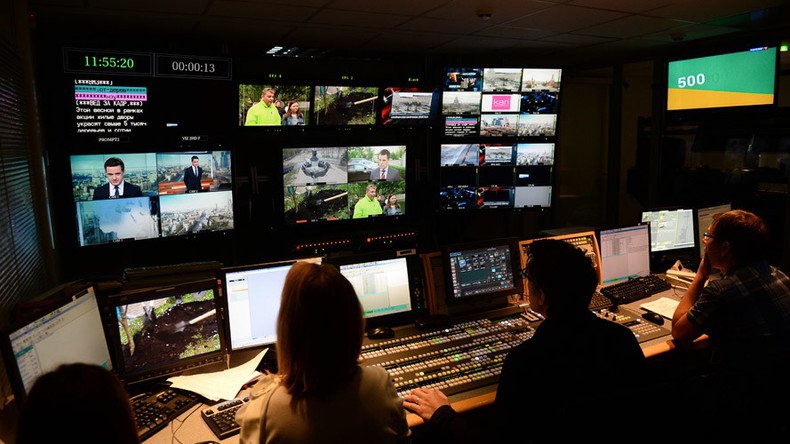Ukraine imposes travel ban on Russian media heads, including RT’s Editor-in-Chief

Ukraine’s president has imposed personal sanctions against the heads of top Russian media, including RT, citing “national security and sovereignty” concerns. The travel ban, however, has been mocked by those who were targeted as a recognition of their merits.
On Friday Petro Poroshenko signed a decree imposing “special personal restrictive measures” against the heads of several leading Russian TV channels and news agencies, including RT’s Editor-in-Chief Margarita Simonyan.
The document blames Russian media heads for “violating human rights” and depriving Ukrainian citizens of “proper rights and freedoms,” as well as “posing a potential threat to the national security, sovereignty and territorial integrity” of Ukraine.
The decree imposes a travel ban on 17 people, including Russia’s Channel One director Konstantin Ernst, head of TASS news agency Sergey Mikhailov, former head of LifeNews TV channel Ashot Gabrelyanov, owner of Pravda.ru media holding Vadim Gorshenin, joined by leaders of numerous Russian newspapers and news outlets.
READ MORE: Kiev orders crackdown on Ukrainian providers broadcasting Russian TV channels
Ukraine’s “personal sanctions,” however, have hardly impressed those affected. RT’s Editor-in-Chief tweeted that Poroshenko’s decree is worth celebrating.
“I do officially invite all those in the club to celebrate it with Crimean champagne,” Simonyan wrote.
Почитала санкционный список Порошенко. Официально приглашаю всю означенную компанию к нам домой отметить это дело крымским шампанским. #лето
— Маргарита Симоньян (@M_Simonyan) May 27, 2016
“This is the list of heroes. We’ll be jealous [of them],” said the current head of the News Media holding which owns LifeNews, Aram Gabrelyanov, who did not make the new sanctions list.
“Basically, I don’t believe that [the Ukrainian sanctions] do any harm. Otherwise, it shows that everyone in this list is a patriot and a defender the homeland,” he later told RIA Novosti.
“@kommersant: Петр Порошенко утвердил санкции против руководителей российских СМИhttps://t.co/EvKr3izSBm” Список героев! Завидовать будем!
— АрамАшотыч (@AramAshotich) May 27, 2016
Kiev has previously issued an order restricting the broadcast of Russian media, including Channel One, Rossiya 24, NTV, RT, Zvezda and other major TV channels. The ban has been harshly criticized by the OSCE as a “repressive measure.”
“Switching off and banning channels is not the way to address [problems]; any potentially problematic speech should be countered with arguments and more speech,” OSCE Representative on Freedom of the Media Dunja Mijatovic said in March 2014.
Earlier in March, Ukraine also banned all Russian movies and TV shows released after January 1, 2014, citing the need to bolster “national security.” The move amended a law banning Russian films falling within the military genre made from 1991, which were dubbed “propaganda” by the Ukrainian authorities.












